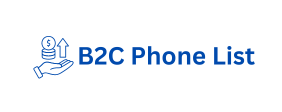Databases are an essential component of most software applications. They provide a way to store, organize, and retrieve data efficiently. There are various types of databases, and each has its own unique features and characteristics. In this article, we will explore the different types of databases and their applications.
Relational Databases
Relational databases are the most commonly used type of database. They are based on the relational model, which organizes data into tables consisting of rows and columns. Each row represents a unique record, and each column represents a specific attribute of that record. Relational databases are efficient for managing large amounts of structured data.
Document Databases
Each document contains a set of key-value pairs, and the entire database is essentially a collection of documents. Document databases are suitable for applications that need to Latest Mailing Database store a large amount of unstructured data, such as social media platforms or content management systems.
Graph Databases
Graph databases are designed to handle complex relationships between data elements. They store data in a graph format, with nodes representing entities and edges representing relationships between them. Graph databases are useful for applications that require complex querying and analysis of relationships, such as social networks or recommendation systems.
Key-Value Databases
Key-value databases are designed for storing simple data structures such as strings, integers, and binary data. Each data element is stored as a key-value pair, and the entire database is essentially a large dictionary. Key-value databases are useful for applications that need to store large amounts of data in a simple and efficient manner, such as caching systems or session stores.
Time-Series Databases
Time-series databases are useful for applications that need to analyze data trends over time, such as financial or IoT (Internet of Things) applications.
In conclusion, choosing the right database for B2C Phone List your application is critical to its success. Each type of database has its own strengths and weaknesses, and it is important to understand them in order to make an informed decision. By considering factors such as data structure, complexity, and performance requirements, you can select the database that best suits your needs.

